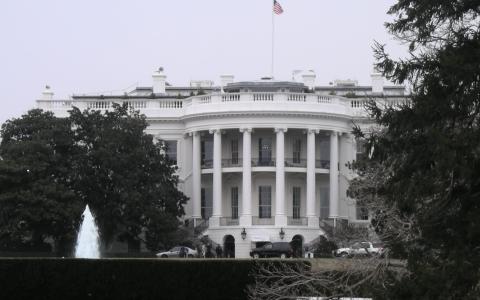
In a significant policy shift, President Donald Trump has signed an executive order mandating that independent federal agencies, including the Securities and Exchange Commission (SEC), obtain White House approval before issuing new regulations. This directive is part of a broader agenda to enhance presidential oversight and reduce regulatory burdens, aligning with efforts by Elon Musk's Department of Government Efficiency to streamline government operations.
The executive order requires all agencies to submit proposed regulations for White House review, eliminating previous autonomy enjoyed by entities such as the SEC and the Federal Communications Commission (FCC). The only exception specified is for the Federal Reserve's monetary policy decisions. Additionally, the Office of Management and Budget (OMB) will now oversee these agencies' funding, setting performance standards and strategic priorities in consultation with the White House.
Critics argue that this move undermines the independence of regulatory bodies designed to operate free from political influence. John Bergmayer, legal director at Public Knowledge, contends that the order positions independent agencies as extensions of the White House, potentially subjecting enforcement actions to political considerations. This perspective raises concerns about the impartiality of agencies like the SEC, which play a crucial role in overseeing financial markets.
At the SEC, there are indications that enforcement protocols may be shifting. Reports suggest that enforcement attorneys are now required to obtain approval from politically appointed leaders before initiating formal investigations, a departure from practices established post-Bernie Madoff scandal to enhance autonomous enforcement. This change could signal a reversion to earlier protocols, potentially impacting the agency's ability to act swiftly against financial misconduct.
Igor Rozenblit, managing partner at regulatory consultancy Iron Road Partners, notes that increased White House involvement in setting agency priorities could extend to enforcement strategies. This ongoing dialogue between the SEC and the White House may open avenues for executive intervention in specific enforcement matters, potentially influencing decisions on which cases to pursue or prioritize.
The administration justifies the executive order as a means to hold agencies accountable and prevent them from enacting costly regulations without oversight. However, Bergmayer counters that independent agencies are already accountable through congressional oversight, budgetary controls, and adherence to the Administrative Procedure Act. He emphasizes that these agencies' actions are subject to judicial review and legislative checks, ensuring they operate within established legal frameworks.
For wealth advisors and Registered Investment Advisors (RIAs), these developments could have significant implications. Increased political oversight of the SEC may lead to shifts in regulatory focus, potentially affecting compliance requirements and enforcement actions related to investment practices. Advisors should stay informed about changes in SEC policies and consider proactive adjustments to their compliance programs to align with the evolving regulatory landscape.
In summary, the executive order represents a substantial change in the governance of independent regulatory agencies, positioning the White House as a central authority in regulatory and enforcement matters. While intended to enhance accountability, this move raises questions about the preservation of agency independence and the potential for political influence over critical financial oversight functions.



